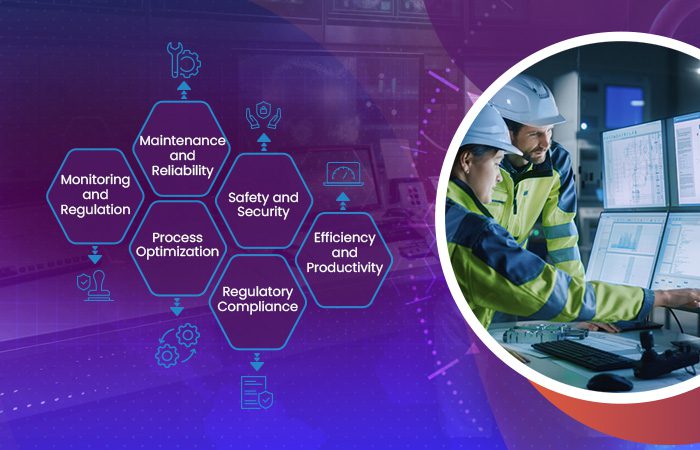
Importance of Instrumentation and Control Engineering in a Plant
A new process plant’s design and construction as an engineering project involves numerous activities and necessary paperwork in several technical and business sectors. “Instrumentation & Control” (also known as I&C) is one of the key technical disciplines that plays a crucial role throughout the whole lifecycle of a process plant project.
A well-tuned instrumentation and control system provides accurate and adequate information about the process parameters of the system for safe, continuous, reliable, and economical operation of the plant, and to avoid guesswork or imagination of operators during plant operation. It involves the design, installation, and maintenance of control systems and instruments that monitor and regulate various processes and equipment in a plant.
Here are some key reasons why instrumentation and control engineering are important in a plant:
- Monitoring and Regulation
Instrumentation and control systems are responsible for monitoring and regulating various parameters such as temperature, pressure, flow, level, and quality in a plant. These systems provide real-time data on process conditions, enabling operators to make informed decisions and take preventive actions to maintain optimal operating conditions.
Owing to several developments over the years, communication between instrumentation and process equipment has now improved because of I&C software and hardware becoming more adaptable, dependable, and user-friendly. As a result, operators can exercise control on equipment, support services, and other production-related components in real-time.
- Safety and Security
Safety is of paramount importance in any industrial plant. Instrumentation and control engineering ensures the implementation of safety systems, such as emergency shutdown systems, fire and gas detection systems, and safety interlocks, to protect personnel, equipment, and the environment from potential hazards. These systems automatically intervene in case of abnormal conditions to prevent accidents and minimize risks.
- Efficiency and Productivity
Instrumentation and control engineering helps optimize plant performance, increase productivity, and save operational costs by automating processes and equipment control. Control systems guarantee that processes function within set boundaries, minimizing variability and maximizing system efficiency. They make it possible to optimize process settings in real-time for greater productivity and less energy use. Other ways that I&C might boost productivity and efficiency include:
- Greater operational effectiveness that lowers the risk of expensive mistakes.
- Increasing automation, which requires less operational labor.
- The potential for automation to boost product output.
- A faster response time to faults and alerts.
- Virtualization, which lowers hardware needs while enhancing dependability and flexibility.
- Confirmation of superior control and product performance.
- Process Optimization
Instrumentation and control engineers utilize advanced control algorithms, data analytics, and optimization techniques to continuously improve process operations. They integrate control systems with advanced monitoring and optimization tools to identify bottlenecks, improve process efficiency, and optimize resource utilization. This leads to better product quality, reduced wastage, and increased overall plant performance.
- Regulatory Compliance
Industrial plants are subject to various regulations and standards regarding safety, environmental impact, and product quality. Instrumentation and control engineering ensures compliance with these regulations by implementing control systems and instruments that monitor and record relevant parameters. This enables accurate data reporting and verification, facilitating compliance with regulatory bodies.
- Maintenance and Reliability
Instrumentation and control engineers contribute to the maintenance and reliability of plant assets. They design and implement condition monitoring systems that continuously monitor the health and performance of critical equipment. This enables proactive maintenance, timely repairs, and minimized downtime, optimizing plant availability and reliability.
Therefore, instrumentation and control engineering are essential for the efficient, safe, and reliable operation of industrial plants. By integrating advanced control systems and instruments, instrumentation and control engineers contribute to the overall success and sustainability of industrial plants. Thus, I&C specialists must be involved in all phases of design, construction, commissioning and startup, operation, and maintenance of the process plant. They must perform some tasks and create documentation on their own or through links (or communications) with other responsible disciplines, teams, or departments in order to obtain data or information, assist in performing their duties, or produce documents on their behalf.
Particularly in design-build projects, teamwork between engineers, technicians, and programmers is necessary to get high-quality results through efficient I&C systems from concept design to 100% completion and startup. If a well-integrated team has a deep understanding of the pros and disadvantages of all possibilities, they will be able to provide the optimum I&C design that is suitable for the intended use and meticulously created to satisfy specifications.

